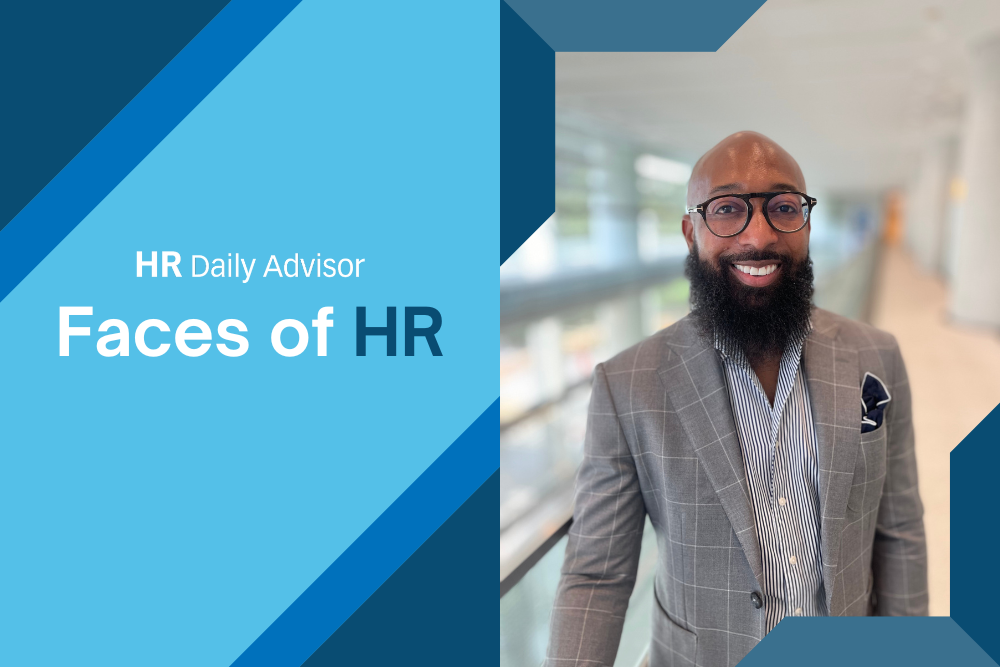Rashad Delph joined Chevron nearly five years ago as the manager of People Analytics and Insights, where he was immediately drawn to the company’s vision to lead in shaping the future of work. In this role, he leaned heavily into various perspectives, analytical insights and industry and functional trends to inform Chevron’s strategic workforce planning and decision-making.
Today, Rashad leads Talent Acquisition at Chevron with a focus on strengthening the attraction of future employees and retention and upskilling of current employees. Chevron’s development programs are designed to help people achieve their full potential, accelerate leadership capabilities and cultivate a diverse and robust talent pipeline in an ever-changing work environment.
Prior to Chevron, Rashad led Talent Acquisition and Talent Management for a Fortune 500 company in automotive supply chain. His career, which spans more than two decades, began at a Fortune 100 company in food nutrition. There, he held various leadership positions in areas such as human resources (HR) business partner, talent acquisition, global mobility, immigration and international compensation.
Working at Chevron
Chevron is one of the world’s leading integrated energy companies, with a workforce of more than 40,000 employees. Solutions start with problem solving, which is exactly what the people of Chevron do– innovation has been a part of the company for more than 140 years, which according to Delph inspires a lot of people who care about building the energy system of the future.
“We realize the future will demand flexibility in building employee skills, new learning, training and adapting to technological change,” said Delph. “We’ve recently rolled out a new people strategy designed to help shape this flexible, learning workplace at Chevron.”
Navigating Human Resources Management
While pursuing a bachelor’s degree in business administration focused on HR, Delph was fortunate to have several mentors – one of whom was Coleman Peterson, the former CHRO of Wal-Mart. Having access to such an influential figure truly helped launch his career. Being part of Kappa Alpha Psi also helped him establish a network of professionals who have similar lifepaths.
“I had an exceptional manager who once pointed out that while I always had a solid Plan A and executed it well, I should also have an equally robust Plan B for when things don’t go as planned,” said Delph. “I would label that Plan B talk as my most valuable lesson, which occurred early in my career.”
Innovating for the future
Delph is the first to say it is an exciting time to be an HR practitioner in energy. “The energy business is rapidly evolving, and that presents a real moment of opportunity,” he said. “We’ll need different approaches to recruit, develop and retain portions of our workforce – as well as new leadership behaviors. It’s a challenge, but I can’t think of a more relevant, rewarding or exciting mission.”
Innovation happens when diverse people, ideas and experiences come together in an inclusive environment. Chevron is focused on engaging the full potential of its people by building high-performing teams and leaders, developing the skills needed for a globally competitive workforce and creating compelling work experiences.
“It all starts with people because people will power the future of energy,” Delph added. “At Chevron, we believe in the power of human ingenuity to solve the toughest challenges… We are at the center of one of the world’s greatest challenges: meeting the energy needs of a growing world and doing so in lower carbon ways.”
Helping People Make an Impact
Today, there are two critical factors impacting talent management. The first is the evolution of skills-based transformation, which involves a deep dive into talent identification versus talent development across various sectors. The second trend is the impact of AI on our technologies, resources and employees. The influence of AI, and how we responsibly use it, could resonate with the next generation of the workforce and potentially influence how organizations conduct business.
Delph added that in HR, you’re not just managing resources; you’re shaping lives and careers. You’re helping individuals find their path, grow professionally and navigate opportunities. You’re also building a work environment that nurtures talent and fosters a sense of belonging. It’s about creating a space where everyone feels valued and heard.


